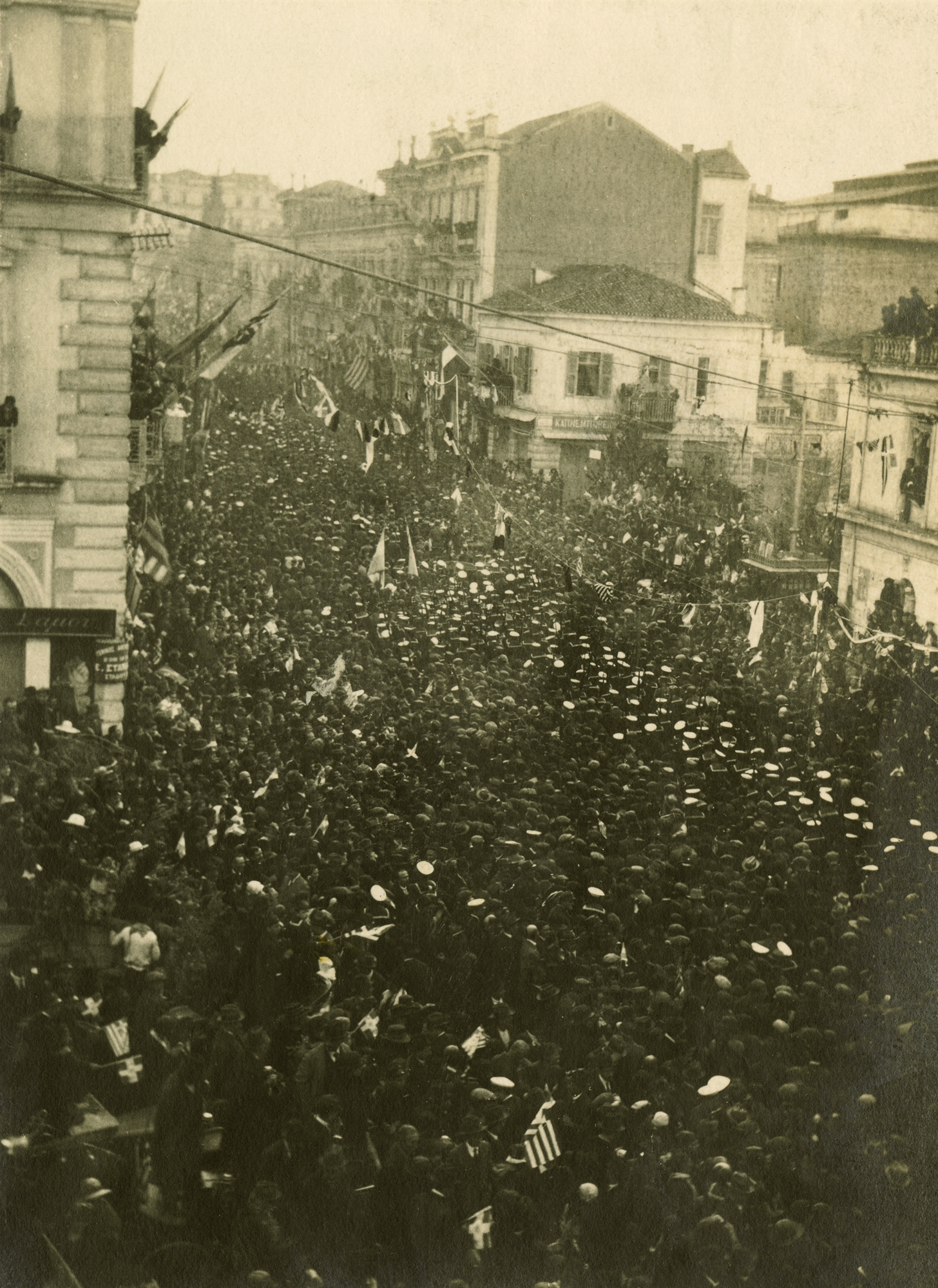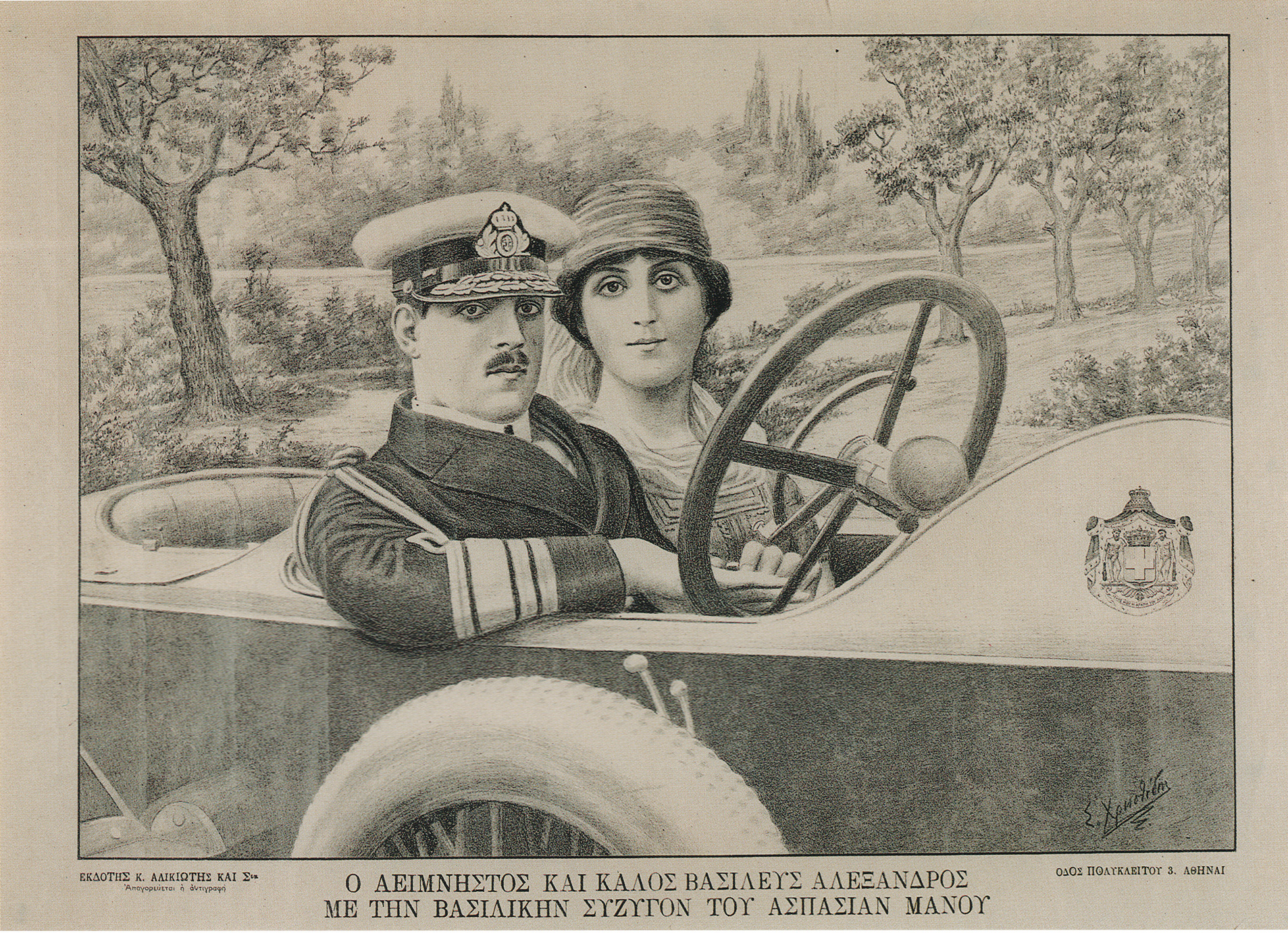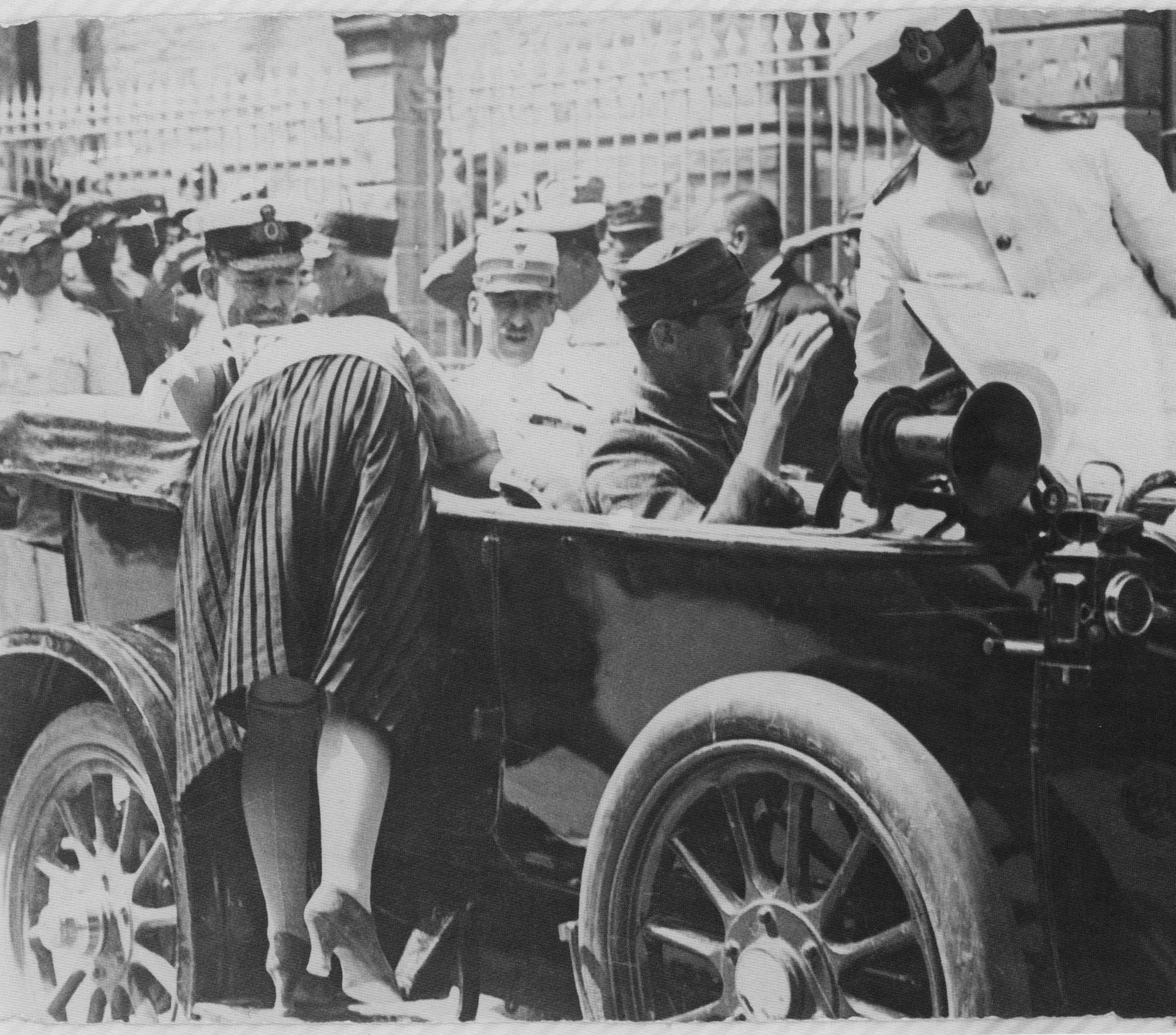
Between May and June 1917, the Allies forced King Constantine to abdicate, replacing him with his second son Alexander, which brought Eleftherios Venizelos to power. He resurrected the parliament that emerged from the May 1915 elections, although it was dissolved in October and new elections were held. The new reality that took shape in 1917 theoretically put a limit on the life of the House of Lazarus in May 1919, just when Greece moved to the western part of Asia Minor. With the manifestation of the nationalist movement led by Major General Mustafa Kemal and the ongoing state of war, its duration was naturally extended by 6 months, as in November by 4 months, with the commitment of the Prime Minister: “I officially declare that immediately after the signing of the peace treaty after Turkey, the parliament will be dissolved and elections will be held within the time frame determined by the Constitution.”
In a conversation with the British ambassador in Athens, Venizelos said that if he had time, he would prefer to hold elections at that time, on the grounds that a large percentage of voters who were not going to vote for him would find out about his role in the negotiations. are over. , he would finally vote for him, realizing the fatal mistake of changing the “national negotiator” of Greece before signing the peace. Focused on fighting for national claims, Venizelos in 1920 expressed his belief in the correctness of public opinion involved in the Great Idea: “The Greek people are sensible enough to condemn my policy, for the moment I have achieved so much for them in the national case. he’s not himself [. . .] did he trust me so many times?”
As peace treaty negotiations with the Ottoman Empire progressed slowly, the life of the Nth period of the Parliament was extended for 3 consecutive months in March and June 1920, now ending on September 29, when the Treaty of Sèvres was signed. July, elections could have taken place in October 1920. Leading liberal politicians were extremely wary of the prospect of holding elections, expressing their skepticism, but Venizelos did not change his mind.

From May 1920, the prospect of an offensive by the Greek army in Asia Minor and the liberation of Western and Eastern Thrace began to disappear, which forced the Sultan to accept the allied terms of peace. At that time, Venizelos began to worry about the possibility that, despite the signing, the Peace Treaty could not be finally enforced. On this occasion, he signaled to British Prime Minister Lloyd George that material assistance and financial support needed to be provided so that the Greek army could mobilize the reserve classes and move east decisively, occupying critical points inside Asia Minor. In such a case, Greece will naturally demand more extensive territorial acquisitions. Venizelos reaffirmed his belief that the citizens, emboldened by military successes, would willingly accept payment for great and last efforts: “When I present everything to the Greek people as they are, they will agree to make the necessary efforts for their almost complete destruction.” national rehabilitation.
Therefore, Venizelos was obliged, after signing a peace treaty with Turkey, to educate the electorate about the excluded prospect of a final peace, by destroying the Ottoman Empire with the help of the British. It was precisely for the possibility of the Gates not fulfilling the terms of the alliance that Article 36 was included in the text of the Treaty of Sevres, threatening to remove the Sultan from Constantinople. Already on his return to Greece, Venizelos appeared “absolutely calm and absolutely prosperous” about the verdict of the people and stated: “Not only the issue of the Northern Continent has not been finally resolved, but the very signing of a peace treaty after Turkey is not the final end of the war with her. If the city government proves unable to fulfill the unsigned treaty imposing its authority in the East, then this has already been expressly stated in the Supreme Council. [. . .] that the Allies are invited to take such measures as they deem appropriate in the circumstances, and the first of these measures is the removal of Turkey from Constantinople.” The pre-election period began with a sharp start to the implementation of the Great Idea, which the authorities, it would seem, so successfully implemented, but could not continue like this.
Liberals are trapped. The attempted assassination of Venizelos in Paris and the subsequent violence in Athens prompted the government to celebrate its successful work abroad. At the end of August, two months later, national elections were announced, followed by a series of initiatives that aroused a sense of triumph.
Venizelos was declared “worthy of the country” by the parliament, he was awarded a golden crown, and the Panathinaikos stadium was organized for victories. Since August, the signal about the end of the games began to be broadcast, with the demobilization of reservists of various specialties, and even entire classes, culminating in the dismissal of the class of 1915 from October 31 (literally on the eve of the elections). Venizelos himself exaggerated, claiming that the 24-month military service of conscripts could be limited to 8 months under certain conditions!
“The Greek people are smart enough to condemn my policies, at the moment I have achieved so much for them in the national cause.”
For its part, the coalition of anti-Venezuelan parties of the United Opposition contented itself with assurances that it would continue to pursue a foreign policy on national issues, and indeed with greater intensity, adopting as an electoral tactic the priority of denouncing the Venezuelan “tyranny” and mismanagement imposed during the period 1917-1920 years., taking advantage of the heavy burden of the people from adversity (malnutrition) caused by the Allied blockade in the period 1916-1917. The liberals rejected the charge of “tyranny” by introducing martial law, which, like in other countries, extended martial law.
On matters of order, such as the return of the king, Venizelos raised the gauntlet and proclaimed in advance that there were no problems, even refusing to hold elections by a provisional government due to the fluidity and criticality of unresolved national issues. In early September, he reaffirmed his position that the reinstatement of Konstantin was out of the question, because it would cause bloodshed that would turn elections across the country into a grand slaughter of passions. As he emphasized: “Such a discussion cannot take place during the elections.”

A week later, on September 17, the monkey bite of King Alexander crossed out all pre-election confidences and balances. What, according to Venizelos, did not allow to be brought to the fore, fate suddenly undertook to bring to the fore after Alexander died on October 12. The dynastic question monopolized the interest of public opinion, decisively influencing the outcome of the elections. Instead of the Great Idea, the subject of public debate was the succession to the throne. In vain, in his campaign speeches, Venizelos reminded that the military situation continues, emphasizing the criticality of moments in national affairs and the severing of ties with the great powers with the possible return of the exiled king. In the eyes of many voters, the populist Konstantinos now emerged as Venizelos’ informal rival.
Venizelos, in the first half of 1920, expressed confidence that Greece would be able to ensure the implementation of the peace treaty by military means (advance eastward, into Asia Minor and Thrace), meaning that this blow would force the Sultan to sign it and, possibly, in more in a broad sense will have a psychological impact on the Kemalites. However, after the signing in Sevres, it became clear that the Kemalist movement was not collapsing. Initially, in order to avoid a military campaign, Venizelos was determined to entrust the suppression of Kemal to the Sultan. However, the commander-in-chief, Leonidas Paraskevopoulos, presented a memorandum based precisely on the belief that Pili could not fulfill the mission by proposing decisive military action. The fields narrowed as events were swift in September, with the Bolsheviks consolidating their positions in southern Russia and Kemal invading Armenia. At the same time, the financial problem faced by the Greek government continued to worsen, which between September 1919 and May 1920 carried out internal borrowings totaling 1.1 billion drachmas. At the height of the pre-election period, the Greek state borrowed (issuing banknotes) in the amount of 400 million dollars, hoping that this would be enough for a period of 6 months.
On September 22, Venizelos sent a letter to the British Prime Minister, explaining that the time had come for a final blow to Kemal, for which Greece needed financial assistance from England and the provision of materials and equipment to mobilize the Greek army. Recent evidence provided by the investigation shows that the refusal of funding from England prompted Venizelos and Lloyd George to accelerate the implementation of the provisions of Article 36, based on the plan to bring Greek troops into Constantinople and expel the Sultan. However, the planned decisions were “frozen” after the defeat of the liberals in the elections.

The logic of Venizelos, according to which, after a series of diplomatic successes, the majority of the Greek people, firmly committed to national ideals, approved of his policy, ignoring the divisive policy pursued at the same time, was not confirmed. The scene was decisively changed – albeit by a small margin – by the unexpected crisis of the dynastic question. An anecdotal study by the late Nikolaos Petsalis-Diomidis proves that the United Opposition won by 3% of the total vote. Considering that the Muslims of Macedonia (about 6% of the electorate) voted for the United Opposition, while in Thrace only combinations of liberals were put forward, monopolizing the votes of Muslims, it is clear that the rest of the voters, to a large extent, understood the stakes of the elections, which were emphasized by Prime Minister. Venizelos was right in arguing that critical developments in national affairs did not afford the luxury of an interim pre-election government. But this was precisely what had to be taken into account in the conditions of the ongoing state of war, which made it impossible to implement the Treaty of Sèvres. Greece should not have even the slightest risk of any unstable factors at such a critical stage of the whole project, and the logic dictated the transition of democratic processes, since if the “national negotiator” really should not be changed, holding elections in the midst of a war was an unacceptable risk .
* Mr. Konstantinos D. Vlassis is the author, he participates in the collective collection “And the East of the Blood Fountain – the campaign in Asia Minor, the causes and consequences of the disaster”, published by Govosti, Athens, 2022.
Source: Kathimerini
James Springer is a renowned author and opinion writer, known for his bold and thought-provoking articles on a wide range of topics. He currently works as a writer at 247 news reel, where he uses his unique voice and sharp wit to offer fresh perspectives on current events. His articles are widely read and shared and has earned him a reputation as a talented and insightful writer.